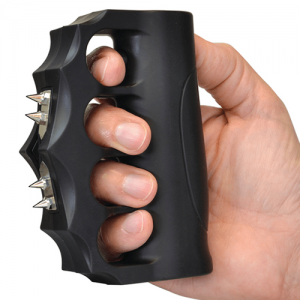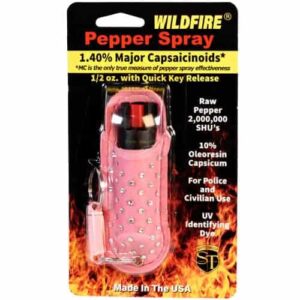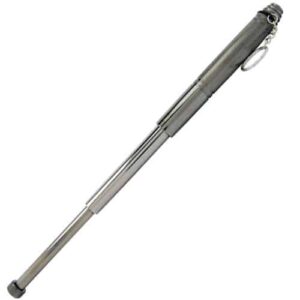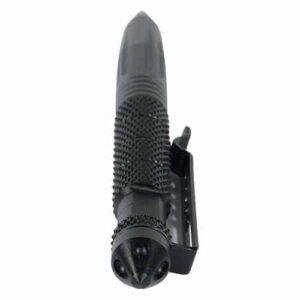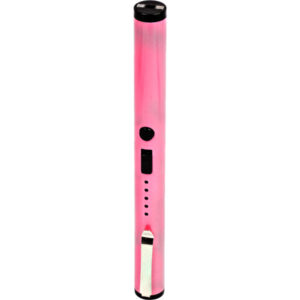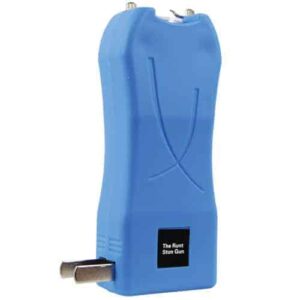Ever felt a sudden, intense sting in your eyes followed by an uncontrollable bout of coughing? If so, it might have been a tryst with pepper spray. Pepper spray, which is sometimes referred to as oleoresin capsicum, is a popular self-defense weapon that can immobilize an attacker. Through the information in “Pepper Spray Effects,” you’ll get acquainted with the nature of pepper spray, the physiology behind its impact, and the implications it holds for both the user and the recipient. Fascinated? Go on, and enrich your understanding of this potent yet commonplace defensive tool.
Table of Contents
ToggleImmediate effects
When exposed to pepper spray, you immediately experience a range of uncomfortable and distressing effects. The active ingredient Capsaicin, triggers a sudden and intense burning sensation. This isn’t just restricted to your skin: if inhaled or taken in through your eyes or mouth, it can feel like your entire body is on fire.
Burning sensation
The burning sensation is usually the first immediate effect you’ll notice when you come into contact with pepper spray. This can feel like you’ve touched a hot stove or stepped out into the midday sun without any sort of protection. It’s a sharp, stinging sensation, that typically lasts for around 30 to 45 minutes, but in some cases, can persist for a few hours.
Excessive tearing
Your body tries to protect itself from perceived harm by releasing excessive tears. This is your body’s attempt to flush a foreign substance from your eyes, but in the case of pepper spray, this reaction unfortunately only spreads the irritant.
Difficulty breathing
Pepper spray immediately irritates your respiratory system as inhalation causes a sudden and violent cough reaction. This can lead to a brief period of difficulty in breathing, varying in severity depending on the concentration of the spray and your individual response to it.
Coughing and choking
Coughing and choking are other common responses to pepper spray, as your body attempts to expel the foreign substance from your respiratory system. This can make breathing normally much more difficult, and induces a kind of fight-or-flight response.
Temporary blindness
Temporary blindness is a particularly scary side effect of pepper spray. It causes a forcible and uncontrollable closure of your eyes, brought on by intense irritation and your body’s reflexive response to protect the eyes.
Pain and inflammation
The immediate contact of pepper spray can cause severe pain and inflammation. The area of exposure becomes red and inflamed, making it sensitive to touch.
Skin effects
There are several impacts of pepper spray on your skin, beginning with immediate irritation and escalating from there.
Redness and irritation
The first reaction you’ll likely notice on your skin is redness and irritation. The area exposed to the pepper spray quickly becomes hot, inflamed, and sensitive to touch. This can last for several minutes or up to a few hours, depending on the concentration of the pepper spray and your personal skin sensitivity.
Swelling and itching
Additionally, skin that comes into contact with pepper spray can begin to swell and itch. This is another reaction as your body tries to minimize damage and fight off the intruder.
Blisters and welts
In more severe cases, the overreaction of your immune system can lead to blisters and welts forming on the skin. This is a sign of a more serious reaction, and medical attention may be necessary.

Eye effects
The impact on your eyes from exposure to pepper spray can be particularly painful and prolonging.
Intense pain
The capsaicin in pepper spray causes intense eye pain. It’s an immediate and forcible reaction that makes you want to close your eyes and keep them closed. The pain can last for up to 45 minutes but typically begins to lessen after that point.
Involuntary closing of the eyes
In response to the pain, your eyes will close involuntarily. This is your body’s natural reaction to protect your eyes from further exposure. This can cause temporary blindness and disorientation.
Blurry vision
Even after opening your eyes, your vision is likely to be blurry. The excessive tearing and inflammation can cloud your vision, making it difficult to see.
Redness and swelling
The inflammation caused by pepper spray isn’t just on your skin. The area around your eyes swell and become red and sore, causing further discomfort, which can remain even after the other symptoms have begun to fade.
Sensitivity to light
Your eyes may also become more sensitive to light following exposure to pepper spray. This is the result of the trauma experienced by your eyes and can last for a few hours to a few days.
Respiratory effects
If inhaled, pepper spray will affect your respiratory system, making it difficult to breathe and causing discomfort.
Difficulty breathing
One of the major respiratory effects of pepper spray is difficulty breathing. This might feel like your air passages are contracting, making it hard for air to get in. This is a direct result of the inflammatory response induced by the pepper spray.
Wheezing
Alongside difficulty breathing, you may also experience wheezing. This is because the bronchial tubes that carry air to your lungs become inflamed and narrower.
Coughing
Coughing is another common respiratory effect of pepper spray. The capsaicin provokes your lungs to expel air forcefully in an attempt to dislodge the irritant.
Shortness of breath
With all of these combined, pepper spray can lead to shortness of breath. It might feel like you aren’t able to get enough air in, no matter how deep your breaths are.
Chest tightness
In some cases, you might even experience chest tightness. This is due to the muscles in your respiratory system tensing up in response to exposure to pepper spray.

Gastrointestinal effects
Pepper spray can also affect your gastrointestinal system, causing discomfort and sickness.
Nausea and vomiting
Exposure might cause a strong feeling of nausea, possibly even followed by vomiting. This reaction is not as common as the other immediate effects of pepper spray but can be quite distressing when it does happen.
Abdominal pain
Abdominal pain can also accompany the nausea and vomiting. This can feel like a stomachache or cramp and is likely due to your body’s overall stress response to the pepper spray.
Diarrhea
In some cases, exposure to pepper spray can cause diarrhea. This is yet another way your body tries to expel the irritant from your system as quickly as possible.
Psychological effects
The effects of pepper spray aren’t just physical. It can also have a serious impact on your mental and emotional state.
Anxiety and panic
Exposure to pepper spray can cause severe anxiety and panic. Not being able to see or breathe clearly can provoke fear and a frantic response.
Disorientation
As your ability to see becomes impaired and your breathing constricted, you may experience disorientation. It’s challenging to maintain your bearings when your primary senses are overwhelmed.
Extreme fear
Another psychological effect of pepper spray is extreme fear. The physical discomfort, combined with temporary blindness and potential disorientation, often leads to a state of high anxiety and fear.
Inability to focus or concentrate
Lastly, pepper spray can also impair your ability to focus or concentrate. The physical discomfort coupled with the mental stress can make it hard for you to think clearly or make logical decisions.

Long-term effects
While most effects of pepper spray are temporary, there are also potential long-term effects to consider.
Delayed onset pain
One such effect is a delayed onset of pain. This means that the full intensity of pain from the exposure may not be felt until several hours or even days later.
Skin discoloration
Pepper spray can also cause skin discoloration. The redness and inflammation during exposure can lead to darker or lighter patches on your skin.
Scarring
In rare cases, intense inflammation and damage from pepper spray can result in scarring. This is particularly likely to occur if blisters and welts formed following exposure.
Residual burning sensation
Even after the immediate burning sensation has reduced, you might still feel a slight burning or tingling sensation on the affected areas. This can continue for several days or even a week after exposure.
Psychological trauma
Last but not least, being exposed to pepper spray can cause psychological trauma. The memory of the painful and distressing experience can linger, causing stress, anxiety, and fear.
Pre-existing health conditions
If you have pre-existing health conditions, particularly respiratory or cardiovascular issues, pepper spray can make them worse or trigger attacks.
Exacerbation of respiratory conditions
People with chronic respiratory diseases like asthma or bronchitis may experience exacerbation of their symptoms due to inhalation of pepper spray. It can stimulate an overreaction in the respiratory system leading to asthmatic attacks or severe breathing difficulty.
Aggravation of cardiovascular conditions
Similarly, pepper spray can also aggravate cardiovascular conditions. The stress of the experience, combined with possible difficulty breathing, can increase blood pressure and heartbeat. For individuals with existing heart conditions, this can result in severe complications.
Increased risk for asthmatics
Pepper spray poses a particular risk for asthmatics. The bronchial constriction and coughing caused by exposure can lead to asthmatic attacks, which in severe cases might require medical attention.
Potential allergic reactions
Lastly, some people may have allergic reactions to pepper spray. This may cause more severe inflammation, intense pain, and potentially life-threatening anaphylaxis in extreme cases.

Secondary effects on others
Pepper spray can also affect others in your vicinity or anyone who comes into contact with you after you’ve been sprayed.
Contamination through touch
People who touch you or your clothing after you’ve been sprayed can experience burning or irritation on their skin. It’s important to thoroughly wash and decontaminate yourself to prevent this.
Indirect inhalation
Additionally, people nearby can be affected by indirect inhalation of the pepper spray. While this is typically not as intense as direct exposure, it can still lead to coughing, difficulty breathing, and stinging eyes.
Panic or anxiety from witnessing effects
Watching someone experience the severe effects of pepper spray can also cause panic or anxiety in others. They may feel distressed or helpless, or fear that they could be next.
Factors affecting intensity
The level of discomfort you experience from pepper spray depends on a range of factors.
Concentration of pepper spray
The concentration of the capsaicinoids in the spray plays a crucial role in determining the intensity of the effects. Higher concentrations result in more severe reactions.
Volume and duration of exposure
Similarly, the longer and the more intensively you’re exposed to pepper spray, the more severe the effects. A brief burst might cause irritation and temporary discomfort, whereas prolonged exposure can lead to more serious and lasting effects.
Distance from the source
The closer you are to the source of the pepper spray, the greater the exposure, and hence the more intense the effects. At a distance, the spray is less concentrated, and its effects are somewhat milder.
Wind or enclosed spaces
Finally, environmental factors can also play a part. Wind can spread the pepper spray, possibly leading to broader exposure. Enclosed spaces can increase the intensity of the effects as the spray is trapped in a confined area with nowhere to dissipate.



